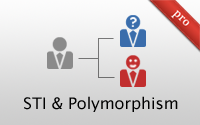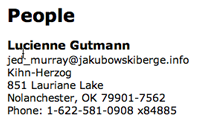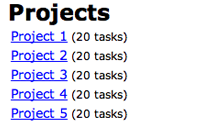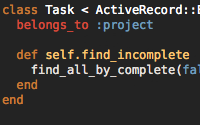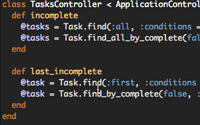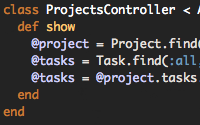Categories
- Active Record
- Active Resource
- Active Support
- Administration
- Ajax
- APIs
- Authentication
- Authorization
- Background Jobs
- Caching
- Code Walkthrough
- Controllers
- Debugging
- Deployment
- eCommerce
- Forms
- Mailing
- Models
- Performance
- Plugins
- Production
- Rack
- Rails 2.0
- Rails 2.1
- Rails 2.2
- Rails 2.3
- Rails 3.0
- Rails 3.1
- Rails 3.2
- Rails 4.0
- Refactoring
- Routing
- Search
- Security
- Testing
- Tools
- Views
Multitenancy with PostgreSQL
PostgreSQL Schemas can help create a multi-tenant app by keeping data separate at the database layer. Integrating with migrations can be tricky though, so watch this episode for the full details.
(11 minutes)
STI and Polymorphic Associations
Single Table Inheritance (STI) can help organize branching logic into separate classes, but a polymorphic association may be a better fit if there are unique database columns.
(14 minutes)
7 Security Tips
Security is important! Here I show seven different security flaws which are common to Rails applications ranging from mass assignment to CSRF protection.
(14 minutes)
Populating a Database
Have you ever wanted to fill up a database with a lot of test data? See how to do that in this episode using the populator and faker gems.
(8 minutes)
Counter Cache Column
If you need to display the record count for a has_many association, you can improve performance by caching that number in a column.
(7 minutes)
Move Find into Model
Move a find into the model to clean up the controllers and remove duplication. Also see how you can call these custom find methods through an association.
(2 minutes)
Dynamic find_by Methods
Shorten simple finds considerably and improve readability by using the dynamic find_all_by and find_by methods.
(1 minute)
SQL Injection
One of the most common security problems for dynamic sites is SQL Injection. Thankfully Rails does everything it can in solving this issue, but you still need to be aware of it.
(5 minutes)
Find Through Association
No need to pass foreign keys in find conditions, just do the find through a has_many association.
(2 minutes)


